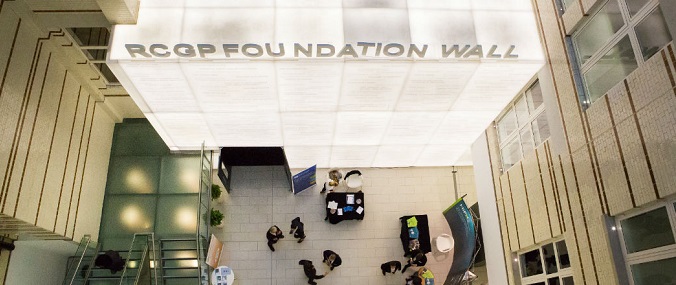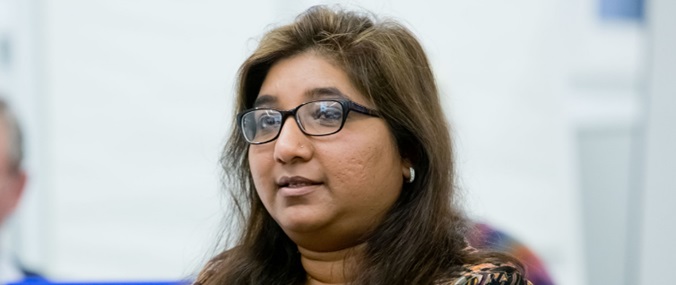Membership benefits and resources
As a retired member, you still have access to our resources, courses, publications, events, and new opportunities:
Discover new opportunities
Explore opportunities, non-clinical skills, and new ways to get involved. Pass on your experience and pride in the profession with opportunities to give back through volunteering or becoming a mentor.
Stay connected
Enjoy a sense of belonging and professional companionship with over 54,000 members. Stay in touch with peers, colleagues and progress at our events, or online via the Members' Forum.
Apply for Fellowship
Get recognition for the valued contribution you’ve made to medicine, the community and general practice.
Join the Later Career and Retired Members (LCARM) Community Group
Discover the work of our Later Career and Retired Members (LCARM) Community Group, representing the interests of later career and retired members.
Get involved and lend your voice
Your voice and views are important in helping us to collectively shape the future of general practice. We’re here to listen.
Exclusive member offers
Save money on the things that matter to you, with exclusive offers from leading brands and retailers through RCGP Plus.
Looking after you, every step of the way
Manage your mindfulness and wellbeing with our range of resources and events.
We want to ensure that your life after clinical practice continues to be rewarding. If you're considering leaving general practice, support is available through the National GP Retention Scheme. The scheme is a package of financial and educational support to help doctors, in England, who might otherwise leave the profession, remain in clinical general practice.
The scheme is open to doctors who meet ALL of the following criteria:
- Where a doctor is seriously considering leaving or has left general practice (but is still on the National Medical Performers List) due to:
- personal reasons – such as caring responsibilities for family members (children or adults) or personal health reasons OR
- approaching retirement OR
- requiring greater flexibility in order to undertake other work either within or outside of general practice
- And when a regular part-time role does not meet the doctor’s need for flexibility, for example the requirement for short clinics or annualised hours.
- And where there is a need for additional educational supervision. For example, a newly qualified doctor needing to work 1-4 sessions a week due to caring responsibilities or those working only 1-2 sessions where pro rata study leave allowance is inadequate to maintain continuing professional development and professional networks.
At the RCGP your wellbeing is always a top priority. If you are considering taking a career break from general practice or you are returning to practice in the UK after a period away, the BMA have a web page dedicated to providing career break advice for GPs.
It is possible to enter or return to NHS general practice later in your career or after a period of retirement.
The NHS GP Induction and Refresher (I&R) Scheme is designed to provide a safe, supported and direct route for qualified GPs to join or return to NHS general practice.
The scheme can be tailored to meet your needs, experiences and personal commitments and also includes financial support. It is available to:
- UK trained GPs returning to the UK from working or volunteering abroad
- UK trained GPs taking a gap of over two years from clinical work as NHS GP
- GPs from abroad
If you are seriously considering leaving general practice, support is available through the National GP Retention Scheme - a package of financial and educational support to help doctors, in England, who might otherwise leave the profession, remain in clinical general practice.
The scheme is open to doctors who meet ALL of the following criteria:
- Where a doctor is seriously considering leaving or has left general practice (but is still on the National Medical Performers List) due to:
- Personal reasons – such as caring responsibilities for family members (children or adults) or personal health reasons OR
- Approaching retirement OR
- Require greater flexibility in order to undertake other work either within or outside general practice.
- And when a regular part-time role does not meet the doctor’s need for flexibility, for example the requirement for short clinics or annualised hours.
- And where there is a need for additional educational supervision. For example, a newly qualified doctor needing to work 1-4 sessions a week due to caring responsibilities or those working only 1-2 sessions where pro rata study leave allowance is inadequate to maintain continuing professional development and professional networks.
Leaving the Performers' List
Care should be given when changing your status on the GMC register and giving up or restoring your licence to practice or registration. If you provide medical services you need a licence to practice - this may include jobs that do not involve direct patient contact. It is important to check the GMC guidelines and seek advice from your current responsible officer before giving up your licence.
Coming off the Performers' List can be much easier than getting back on. If there is any chance at all that you will wish to see patients in the future, consider remaining as a locum whilst you think about your options. The decision-making process may be difficult so discussions with friends, colleagues, your appraiser or LMC may be helpful.
Primary Care Support England's Performers' Lists' webpage provides further information.
Making a change
To change your status (e.g. from locum to salaried), registered address or place of work on the Performers List, download the National Performers Lists change notification form.
A guidance document is available from NHS England: Supporting doctors who undertake a low volume of NHS general practice clinical work. This includes information on appraisals and the form to complete if you are undertaking less than 40 NHS GP sessions per year.
This is a scheme supported by national funding, delivered by ICSs/STPs, aimed at supporting GPs through creating an opportunity to develop mentoring skills, and to working in a different way. The overarching aim is to retain experienced GPs working in primary care through creating this portfolio working opportunity, while supporting less experienced GPs through high quality mentoring.
Commitment: Three clinical sessions and one mentoring session per week, with mentoring training leading to mentoring qualification.
For more details about local availability, check with your local PCN.
Supporting Mentors Scheme Guidance for 2020/21 from NHS England
The National Association of Sessional GPs provide information and support to those working as locum GPs.
The key resource for information and advice on pensions is the BMA pensions web pages.
Can I still be a member of the RCGP when I’ve retired?
Of course. You may have retired from general practice, but your relationship with the RCGP can continue and grow and flourish. Now is the time to recognise your achievements, pass on your knowledge, celebrate a life well lived.
What membership options are available for retired GPs?
If you have fully retired and relinquished your licence to practice and no longer participate in the annual appraisal cycle, you will get a 75% discount on our full membership fee.
Alternatively, you can apply for Life membership by paying a lump sum equal to three times the full annual subscription fee for the current membership year. Life membership payments are tax deductible, provided payment is made during the retirement year while still in employment. If you have reached 40 years continuous membership or are age 70 by 1 April, you will automatically be awarded Life Membership or Life Associateship. No further membership fees will be due.
Discuss your options by contacting our friendly member services team through the RCGP member helpdesk.
Thank you for your feedback. Your response will help improve this page.



